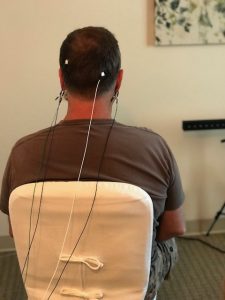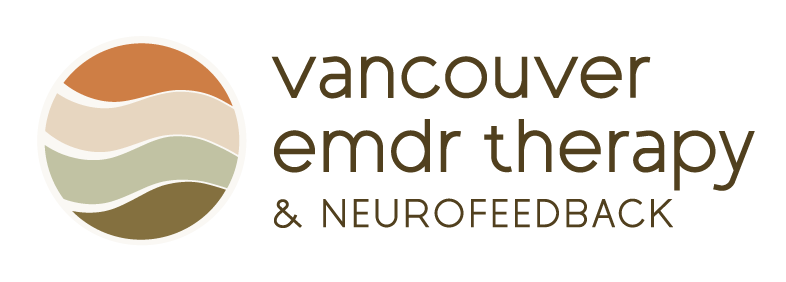Change your physiology to feel better, causes of amnesia in childhood, excessive doing and busyness, six drive impacted by trauma, mindful bilateral stimulation and more in the blog below.
This is a list of monthly “trauma recovery tips” from a trauma specialist to help you reduce the effects of trauma and chronic stress on your life so you can live from a place of healing, hope and happiness.
Healing from trauma is a different process for each person. As a trauma-focused therapist I never tell my clients to do anything that I haven’t tried or use regularly in my life. I have learned over the years through experience, research, feedback from clients and insights from other professional’s successful ways of healing emotional wounds as well as managing persistent stress. What I share with you here is both cutting edge and tried-and-true techniques for healing.
Trauma Tip #1
 Change your physiology and feel better. People with trauma and PTSD have a dysregulated nervous system. One way to get the nervous system back on track is to change your physiology. An effective way of doing this is through Neurofeedback. LENS Neurofeedback changes a person’s brain waves so that the nervous system will calm down. Once this happens then PTSD symptoms will ease. Other ways to work directly with your physiology is through mindfulness and HRV (Heart Rate Variability).
Change your physiology and feel better. People with trauma and PTSD have a dysregulated nervous system. One way to get the nervous system back on track is to change your physiology. An effective way of doing this is through Neurofeedback. LENS Neurofeedback changes a person’s brain waves so that the nervous system will calm down. Once this happens then PTSD symptoms will ease. Other ways to work directly with your physiology is through mindfulness and HRV (Heart Rate Variability).
Trauma Tip #2
Amnesia. It is very common for survivors of childhood abuse to experience amnesia from the time period that they were abused. Amnesia can also happen to trauma survivors as adults. This can show up in one’s current life as losing track of time. This can look like losing time during the day, having conversations with others that you don’t remember, buying things that you have no memory of. When seeking trauma therapy, it is important to work with a trauma-informed therapist that can assess you for dissociation before beginning the work.
Trauma Tip #3
Excessive doing and busyness. A common characteristic of a trauma survivor is to constantly stay busy. Staying busy and over stimulated through drinking excessive coffee and sugar, obsessing over projects and chores, never relaxing or slowing down are behaviors that can indicate a trauma response. People who get stuck in sympathetic nervous system arousal also can be known as fight or flight will find themselves in this state. Sometimes this is an indicator or an unfinished process that was halted back in the trauma experience or in other words an incomplete action to move, to flee or to be in control.
Slow down, take time and notice the next time you find yourself rushing, being excessively busy, distracting yourself with unimportant things or just stuck in a “doing” mode. Check in and ask yourself, “What am I really feeling right now”? What is it that I really need”?
Trauma Tip #4
 Sex drive. A person’s sex drive can be impacted by trauma. Losing one’s sex drive is not uncommon. PTSD can be in direct conflict with feeling good, being relaxed and experiencing pleasure. Other aspects of trauma that can affect sex drive is related to sexual abuse. Sexual abuse or assaults can make the act of sex feel unsafe due to flashbacks or body memories. On the other hand, there are some people who feel a more intense drive for sex as a result of trauma. A compulsion for closeness or a feeling of escape or control can be factoring into this.
Sex drive. A person’s sex drive can be impacted by trauma. Losing one’s sex drive is not uncommon. PTSD can be in direct conflict with feeling good, being relaxed and experiencing pleasure. Other aspects of trauma that can affect sex drive is related to sexual abuse. Sexual abuse or assaults can make the act of sex feel unsafe due to flashbacks or body memories. On the other hand, there are some people who feel a more intense drive for sex as a result of trauma. A compulsion for closeness or a feeling of escape or control can be factoring into this.
It is always good to rule out medical or physical issues before ruling in emotional ones. Working with a trauma informed therapist can help both the individual struggling with sex drive as well as their partner. EMDR therapy can be particularly helpful.
Trauma Tip #5
Mindful Bilateral Music– Try this mindful bilateral music (listen with your headphones on) to feel relaxed or to help you sleep at night.
This information is provided by Lemecia Lindsey, LICSW. Lemecia has dedicated her private counseling practice to helping clients heal from trauma. She specializes in EMDR therapy, Neurofeedback and is an Integrative Medicine Mental Health Provider.
*This list is not a substitute for medical intervention. Consult with a doctor to decide what is best for you.




